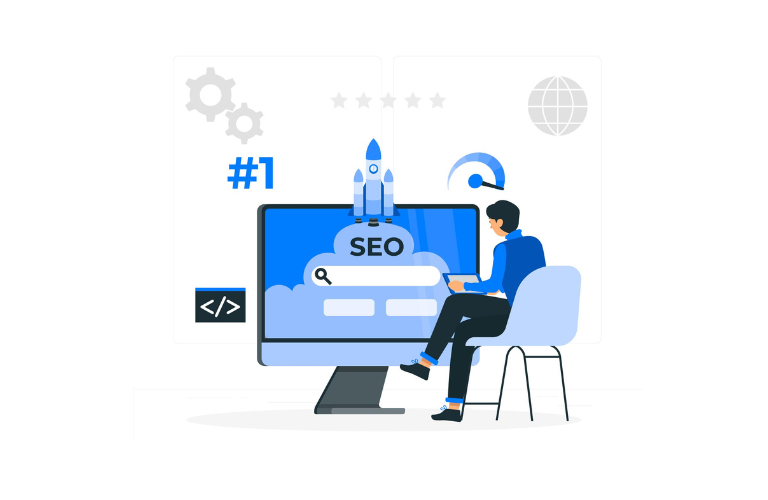ChatGPT WordPress integration is transforming how website owners manage content, optimize for search engines, and engage audiences. By combining ChatGPT with SEO, analytics, and social media plugins, you can streamline tasks, save time, and boost performance.
This article explores practical ways to implement this powerful combo on your WordPress site, addressing pain points like slow workflows and low engagement with actionable solutions.
Table of Contents
Why ChatGPT WordPress Integration Matters
WordPress powers over 43% of websites, making it a go-to platform for blogs and businesses. Integrating ChatGPT enhances its capabilities, automating content creation and user interaction. This saves resources while maintaining quality, helping you stay competitive.
- Time Efficiency: Generate blog posts or replies in minutes.
- Cost Savings: Reduce reliance on expensive SEO or content specialists.
- User Engagement: Add AI-driven chatbots to answer visitor queries instantly.
The key is pairing ChatGPT with the right plugins to maximize impact.
Setting Up ChatGPT WordPress Integration
Getting started with ChatGPT WordPress integration is straightforward. You’ll need an OpenAI account and a compatible plugin to connect AI to your site. Here’s a simple implementation guide:
- Sign up at platform.openai.com and generate an API key.
- Install a plugin like AI Engine or AI Content Writing Assistant.
- Enter your API key in the plugin’s settings.
- Test the setup by generating a sample post or chatbot response.
This process takes less than 10 minutes, making it a quick win for busy site owners.
Use Case 1: Content Creation with ChatGPT
Creating high-quality content is a top priority for any WordPress site. ChatGPT WordPress integration simplifies this by generating blog posts, product descriptions, or social media updates. For example, you can prompt ChatGPT to write a 500-word article on “sustainable gardening tips” optimized for SEO.
- Prompt Example: “Write a 500-word blog post on sustainable gardening, including keywords like ‘eco-friendly plants’ and a friendly tone.”
- Output: A ready-to-publish post with natural keyword placement.
- Time Saved: Hours of writing condensed into minutes.
Plugins like AI Power let you fine-tune tone and style to match your brand, ensuring consistency across posts.
Boosting SEO with ChatGPT and Plugins
SEO is critical for driving traffic, and ChatGPT WordPress integration can enhance your strategy. By combining ChatGPT with plugins like Yoast SEO or Rank Math, you can optimize content effortlessly. ChatGPT generates keyword lists or meta descriptions, while plugins ensure technical compliance.
- Ask ChatGPT: “Suggest 10 long-tail keywords for ‘vegan skincare products.’”
- Use Yoast SEO to check readability and keyword density.
- Apply ChatGPT’s meta description suggestions to improve click-through rates.
This combo helps you rank higher on Google without hiring costly consultants, addressing the pain point of complex SEO tasks. For more on SEO tools, check Yoast’s guide.
Use Case 2: Automating Comment Responses
Engaging with visitors through comments builds community but can be time-consuming. ChatGPT WordPress integration automates this process. Plugins like AI Engine allow ChatGPT to suggest personalized replies to comments, which you can edit for authenticity.
- Example Command: “Generate a friendly reply to a comment praising my blog post on fitness tips.”
- Result: “Thanks for the kind words! Glad you enjoyed the fitness tips—stay tuned for more!”
- Shortcut: Set up templates for common comment types to save even more time.
Integrating Analytics for Data-Driven Decisions
Understanding your audience is key to success. Pairing ChatGPT WordPress integration with analytics plugins like MonsterInsights lets you analyze performance and refine content. For instance, export Google Analytics 4 (GA4) data and use ChatGPT to identify high-performing topics.
- Export GA4’s “Pages and Screens” report for blog data.
- Prompt ChatGPT: “Analyze this CSV and suggest five blog topics likely to drive traffic.”
- Use MonsterInsights to track real-time results after publishing.
This approach solves the pain point of data overload, turning raw numbers into actionable insights. Learn more about GA4 setup at Google’s Analytics Help.
Use Case 3: Social Media Automation
Social media drives traffic, but posting consistently is demanding. ChatGPT WordPress integration, combined with plugins like Blog2Social, automates this process. ChatGPT can craft engaging tweets or Instagram captions tailored to your posts.
- Command: “Write a tweet promoting my new post on eco-friendly travel, under 280 characters.”
- Output: “🌿 Discover eco-friendly travel tips in my latest post! Save the planet while exploring. Read now! [link] #SustainableTravel”
- Time Saved: Schedule weeks of posts in one session.
Enhancing User Experience with Chatbots
A chatbot powered by ChatGPT WordPress integration can transform visitor experience. Plugins like AI Power enable AI-driven bots to answer FAQs, guide users, or recommend products 24/7. This reduces bounce rates and boosts conversions.
- Setup: Configure AI Power to respond to common queries like “What’s your return policy?”
- Benefit: Instant responses keep users on-site longer.
- Customization: Adjust the bot’s tone to match your brand’s voice.
For inspiration, explore chatbot trends in our WordPress AI Plugins article.
Use Case 4: Marketing Campaigns Made Easy
Crafting compelling marketing emails or campaigns is simpler with ChatGPT WordPress integration. Use it alongside plugins like MailPoet to create personalized emails that convert. For example, remind users about abandoned carts or promote new posts.
- Prompt: “Write a humorous email reminding users about their abandoned cart.”
- Result: A catchy email that nudges users to complete their purchase.
- Shortcut: Save email templates in MailPoet for reuse.
This tackles the pain point of low engagement, turning prospects into loyal customers.
Ensuring GDPR Compliance
Data privacy is non-negotiable. ChatGPT WordPress integration via plugins like AI Engine is GDPR-compliant, collecting no personal data without consent. Always verify plugin settings to ensure compliance with regulations like GDPR or CCPA.
- Check plugin documentation for data handling policies.
- Inform users about AI usage via a privacy policy page.
- Use consent banners for transparency.
This builds trust, addressing concerns about data security.
Common Challenges and Solutions
While ChatGPT WordPress integration is powerful, issues like API errors or plugin conflicts can arise. Here’s how to troubleshoot:
- API Key Errors: Double-check your OpenAI key in plugin settings.
- Plugin Conflicts: Deactivate other plugins temporarily to identify culprits.
- Slow Performance: Limit ChatGPT queries to avoid server strain.
Most issues have quick fixes, ensuring smooth operation. For deeper WordPress tips, visit our Optimization Guide.
Shortcuts for Time-Saving Success
Maximizing ChatGPT WordPress integration means leveraging shortcuts. These hacks streamline workflows and boost efficiency:
- Batch Content Creation: Generate multiple posts in one session.
- Template Prompts: Save reusable commands for comments or emails.
- Scheduled Automation: Use plugins to auto-publish AI-generated content.
These tricks save hours, letting you focus on growth.
Real-World Example: A Blog Transformation
Consider a small business blog struggling with low traffic. By adopting ChatGPT WordPress integration, the owner installed AI Engine and Yoast SEO. They used ChatGPT to write optimized posts, automate comment replies, and schedule social media updates via Blog2Social. Within three months, traffic doubled, and engagement soared—all without a hefty budget.
This use case shows how accessible AI tools empower anyone to compete.
Future-Proofing Your WordPress Site
ChatGPT WordPress integration isn’t just a trend—it’s the future. As AI evolves, plugins will offer even more features, from predictive analytics to voice search optimization. Start experimenting now to stay ahead.
- Monitor plugin updates for new AI capabilities.
- Test ChatGPT’s evolving models for better outputs.
- Integrate with emerging tools like voice assistants.
Early adopters gain a competitive edge in search rankings and user experience.
FAQs
1. What is ChatGPT WordPress integration?
ChatGPT WordPress integration connects OpenAI’s AI chatbot to your WordPress site using plugins. It helps automate content creation, SEO tasks, and visitor interactions, saving time and boosting engagement.
2. How do I set up ChatGPT on my WordPress site?
Sign up at platform.openai.com, get an API key, install a plugin like AI Engine, and enter the key in the plugin settings. You’re ready to generate content or add a chatbot in minutes.
3. Can ChatGPT help with SEO on WordPress?
Yes! ChatGPT suggests keywords, writes meta descriptions, and optimizes content. Pair it with plugins like Yoast SEO to improve rankings and drive more traffic.
4. Is ChatGPT WordPress integration safe for my site?
It’s safe when using GDPR-compliant plugins like AI Power. Always check plugin settings and add a privacy policy to ensure data security and build user trust.
5. How can ChatGPT improve my site’s engagement?
ChatGPT powers chatbots to answer visitor questions instantly and automates comment replies. This keeps users on your site longer, reducing bounce rates and encouraging interaction.
6. Does ChatGPT WordPress integration save time?
Absolutely. It generates blog posts, social media content, and emails in minutes. Plugins like Blog2Social automate sharing, letting you focus on strategy instead of repetitive tasks.
7. What plugins work best with ChatGPT for WordPress?
Top choices include AI Engine for content and chatbots, Yoast SEO for optimization, MonsterInsights for analytics, and Blog2Social for social media automation. They enhance ChatGPT’s capabilities seamlessly.




